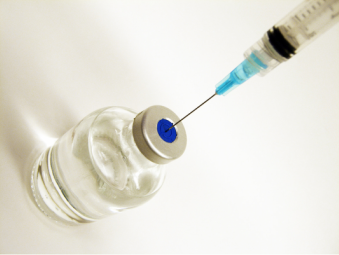MMR RAISES RISK OF ORCHITIS 20-FOLD
Pulse, 9/6/03 (Informed Parent 4/2003)
A US Goverment investigation has shown patients immunised with the MMR vaccine are 20-30 times more likely to suffer orchids, a severe swelling of the testes that can lead to sterility. Researchers from the Centers for Disease Control and Prevention (CDC) in Atlanta, Georgia, searched the official US Vaccine Adverse Event Reporting Scheme (VAERS) and found 60 cases of orchids following MMR vaccine.
Some 70% of cases were in children over four years old and peak onset was 7-12 days after vaccination. In 26 cases the orchitis was in both testes, increasing the risk of sterility, and in seven cases parotitis preceded testicular symptoms.
Orchitis was reported 20-30 times more frequently following MMR than after any other vaccine.
The researchers, from the immunisation safety branch of the CDC, said the reported rate of orchitis was about one per 2,650,000 doses, which was 'extremely small'.
The study, presented last month at the Vaccine Research annual conference in Virginia, said: 'In the absence of other reported causes and with plausible temporal relationships, some of the cases we reviewed were likely due to MMR.’
Pulse, 9/6/03 (Informed Parent 4/2003)
A US Goverment investigation has shown patients immunised with the MMR vaccine are 20-30 times more likely to suffer orchids, a severe swelling of the testes that can lead to sterility. Researchers from the Centers for Disease Control and Prevention (CDC) in Atlanta, Georgia, searched the official US Vaccine Adverse Event Reporting Scheme (VAERS) and found 60 cases of orchids following MMR vaccine.
Some 70% of cases were in children over four years old and peak onset was 7-12 days after vaccination. In 26 cases the orchitis was in both testes, increasing the risk of sterility, and in seven cases parotitis preceded testicular symptoms.
Orchitis was reported 20-30 times more frequently following MMR than after any other vaccine.
The researchers, from the immunisation safety branch of the CDC, said the reported rate of orchitis was about one per 2,650,000 doses, which was 'extremely small'.
The study, presented last month at the Vaccine Research annual conference in Virginia, said: 'In the absence of other reported causes and with plausible temporal relationships, some of the cases we reviewed were likely due to MMR.’
